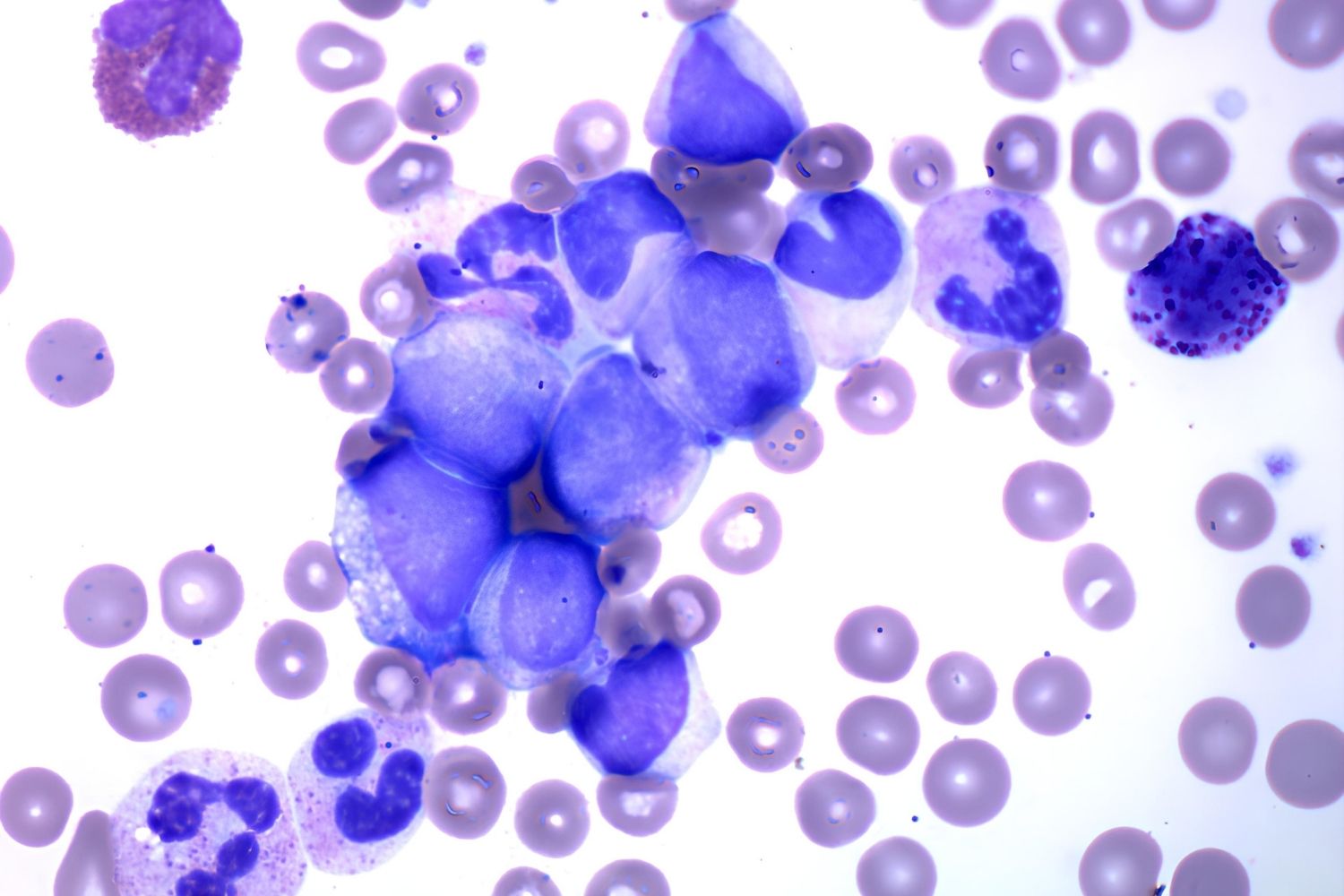
Philadelphia-negative chronic myeloid leukemia (CML) is a rare type of blood cancer. Unlike the more common Philadelphia-positive CML, this variant lacks the BCR-ABL1 gene mutation. But what does this mean for patients? Understanding the differences can help in managing the disease better. Philadelphia-negative CML often presents unique challenges in diagnosis and treatment. Patients might experience symptoms like fatigue, weight loss, and an enlarged spleen. Doctors use various tests to identify this condition, including blood tests and bone marrow biopsies. Treatment options can vary, often involving chemotherapy or targeted therapies. Knowing these facts can empower patients and their families to make informed decisions. Let's dive into 25 key facts about this complex disease to shed light on its intricacies.
Key Takeaways:
- Philadelphia-Negative Chronic Myeloid Leukemia is a rare blood cancer with different genetic mutations and treatment options than the more common Philadelphia-positive CML.
- Patients can maintain a good quality of life with proper treatment, regular monitoring, and ongoing research leading to potential new treatment options.
What is Philadelphia-Negative Chronic Myeloid Leukemia?
Philadelphia-Negative Chronic Myeloid Leukemia (CML) is a rare type of blood cancer. Unlike the more common Philadelphia-positive CML, this variant does not have the Philadelphia chromosome. Here are some intriguing facts about this condition.
-
Philadelphia-Negative CML lacks the BCR-ABL gene fusion: This gene fusion is present in most CML cases but absent in Philadelphia-negative cases.
-
Rarer than Philadelphia-positive CML: Philadelphia-negative CML accounts for a smaller percentage of all CML cases.
-
Different genetic mutations: Instead of the BCR-ABL gene, other mutations like JAK2, CALR, or MPL might be present.
-
Symptoms are similar to other CML types: Fatigue, weight loss, and night sweats are common symptoms.
-
Diagnosis involves bone marrow biopsy: A bone marrow biopsy helps identify the absence of the Philadelphia chromosome.
Treatment Options for Philadelphia-Negative CML
Treatment for Philadelphia-negative CML can differ from the more common type. Here are some key points about the treatment options available.
-
Tyrosine kinase inhibitors (TKIs) are less effective: TKIs, effective in Philadelphia-positive CML, are less effective here.
-
Chemotherapy is often used: Chemotherapy remains a primary treatment method.
-
Interferon therapy: Interferon can help manage the disease in some patients.
-
Stem cell transplant: This can be a curative option for some patients.
-
Clinical trials: Patients might participate in clinical trials to access new treatments.
Prognosis and Survival Rates
Understanding the prognosis and survival rates for Philadelphia-negative CML is crucial for patients and their families.
-
Prognosis varies: Prognosis can vary widely based on individual factors.
-
Survival rates are improving: Advances in treatment have improved survival rates over the years.
-
Early diagnosis is key: Early diagnosis can significantly improve outcomes.
-
Regular monitoring is essential: Regular blood tests and check-ups are crucial for managing the disease.
-
Quality of life can be maintained: With proper treatment, many patients maintain a good quality of life.
Research and Future Directions
Ongoing research is vital for improving the understanding and treatment of Philadelphia-negative CML. Here are some exciting developments.
-
New genetic targets: Researchers are identifying new genetic targets for treatment.
-
Personalized medicine: Personalized treatment plans based on genetic profiles are being developed.
-
Immunotherapy: Immunotherapy is being explored as a potential treatment option.
-
Better diagnostic tools: Improved diagnostic tools are being developed for earlier and more accurate detection.
-
International collaborations: Researchers worldwide are collaborating to find better treatments.
Living with Philadelphia-Negative CML
Living with Philadelphia-negative CML involves managing symptoms and maintaining a healthy lifestyle. Here are some tips and facts.
-
Regular exercise: Exercise can help manage fatigue and improve overall health.
-
Healthy diet: A balanced diet supports the immune system and overall well-being.
-
Mental health support: Counseling and support groups can help manage the emotional impact of the disease.
-
Medication adherence: Taking medications as prescribed is crucial for managing the disease.
-
Stay informed: Staying informed about the latest research and treatment options can empower patients and their families.
Final Thoughts on Philadelphia-Negative Chronic Myeloid Leukemia
Philadelphia-Negative Chronic Myeloid Leukemia (Ph-negative CML) is a rare but significant type of leukemia. Understanding its unique characteristics helps in better diagnosis and treatment. Unlike its Philadelphia-positive counterpart, Ph-negative CML lacks the BCR-ABL1 gene mutation, making it distinct in its behavior and response to treatment. Patients with Ph-negative CML often face different challenges, including varied symptoms and treatment options. Early detection and personalized treatment plans are crucial for managing this condition effectively. Research continues to evolve, offering hope for better therapies and outcomes. Staying informed and working closely with healthcare providers can make a significant difference in the lives of those affected. Remember, knowledge is power when dealing with any medical condition. Stay proactive, ask questions, and seek support from medical professionals and support groups.
Frequently Asked Questions
Was this page helpful?
Our commitment to delivering trustworthy and engaging content is at the heart of what we do. Each fact on our site is contributed by real users like you, bringing a wealth of diverse insights and information. To ensure the highest standards of accuracy and reliability, our dedicated editors meticulously review each submission. This process guarantees that the facts we share are not only fascinating but also credible. Trust in our commitment to quality and authenticity as you explore and learn with us.
